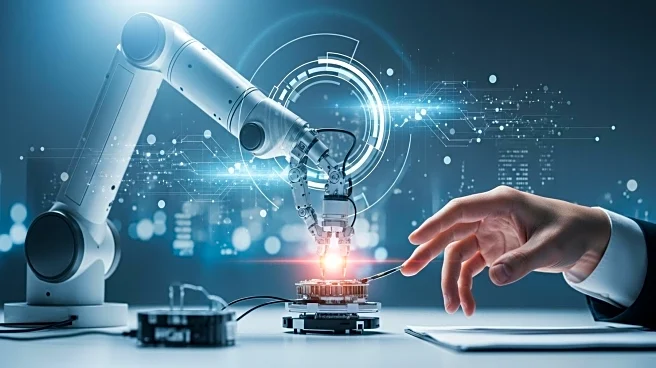What's Happening?
Stanford University has released a study highlighting the significant impact of artificial intelligence on entry-level workers in the U.S. labor market. The research, led by economist Erik Brynjolfsson, analyzed payroll records from millions of American workers and found a 13% decline in employment for early-career workers in AI-exposed professions such as software engineering and customer service. The study indicates that younger workers, particularly those aged 22 to 25, are most affected, as AI systems automate routine tasks. In contrast, employment for older, more experienced workers in the same fields has remained stable or grown. The study suggests that AI is driving a labor-market shift, with entry-level workers struggling to differentiate themselves in a competitive hiring environment.
Why It's Important?
The findings of the Stanford study underscore the transformative impact of AI on the U.S. labor market, particularly for young workers entering AI-exposed professions. This shift could have significant implications for the future of employment, as entry-level positions become increasingly scarce due to automation. The study highlights the need for workers to acquire skills that cannot be easily replaced by AI, emphasizing the importance of experience and tacit knowledge. As AI continues to evolve, industries may need to adapt their hiring practices and training programs to address the challenges faced by entry-level workers, potentially reshaping the workforce and economic landscape.
What's Next?
The study suggests that the AI revolution is just beginning, with potential long-term effects on job opportunities for entry-level workers. As AI technology advances, industries may need to explore new strategies to integrate AI into their operations while minimizing its disruptive impact on employment. Policymakers and educational institutions may also need to consider initiatives to support young workers in acquiring skills that complement AI technologies, ensuring they remain competitive in the evolving job market.












